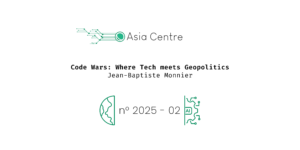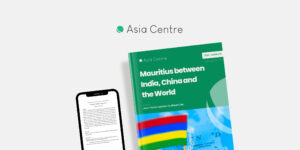As the surveys announced, the Liberal-Democratic Party had a sweeping victory during the senatorial elections on the 21 July 2013. This triumph came about after the Prime Minister, Shinzō Abe, in June 2013, unveiled the highly awaited “third arrow”. This arrow is from a program (“Abenomics”) whose purpose is to remodel Japan’s economy and sustainably reinstate the country’s growth: a plan for economic modernisation, to revitalise the private sector with public commissions, and the liberalisation of innovative sectors. It also includes greater support for opening the country to the international market. In light of the number of seats won by the LDP, it appears that Japanese voters have elected a policy associating a reaffirmation of Japanese economic power with a rhetoric much more nationalistic than other previous governments.
As such, Abe’s government knows that the Japanese and international opinion currently fears that the Prime Minister will use this extensive power not to pursue his reformation programme, but rather to advance his pacific revision project for the 1947 Constitution, to which several Japanese remain deeply attached. How to reconcile the Prime Minister’s zeal for strengthening relations with the United States within the context of an expanded alliance supported by South-Eastern Asian countries hostile toward China’s maritime aims by reviewing this Constitution written during the period of time when Japan was occupied by the supreme command of the Allied forces?
Summary
– CLOSE UP ON THE NEWS –
Prime Minister Abe and the Japan-US Alliance: History is in the way again (Yann Favennec)
Abenomics: a return to traditional LDP policies or a new way out of the crisis? (Adrienne Sala)
– POINTS OF NEWS –
Interview with Honda Etsurō, “The central issues in Abenomics; towards a plan for economic renaissance beginning with a “change of regime”, Gaikō (Translated by Sophie Buhnik and re-read by Nicolas Morishita)
Yachi Shōtaro, “At the heart of Abe’s diplomatric strategy: forming an alliance with Asian countries with shared values and outlooks”, Gaikō (Translated by Sophie Buhnik and re-read by Nicolas Morishita)




